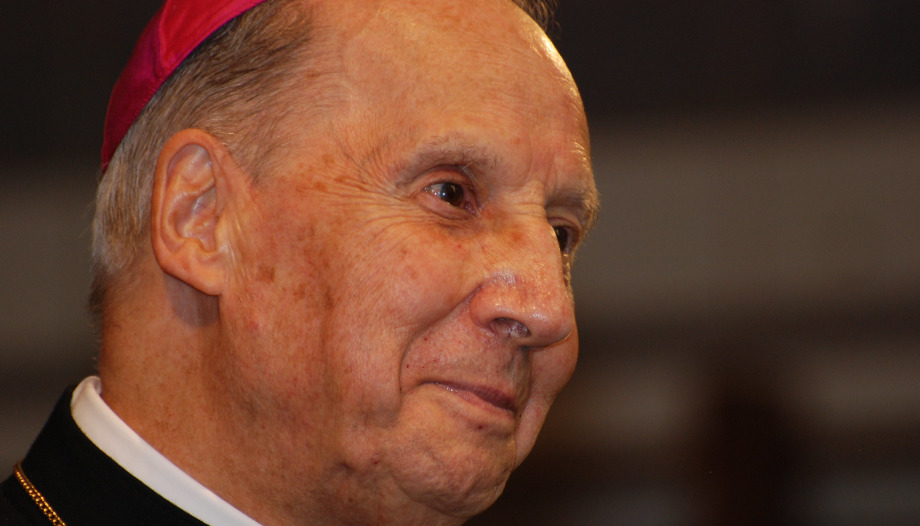With the loss of the person who has led it for more than twenty years, the bishop Javier Echevarría Rodríguezwho died on December 12 at the age of 84, Opus Dei, one of the most influential and notorious Catholic organizations in the world, is now facing a generational transition.
However, it does so from a base of strength, thanks in part to the two decades that Echevarría has been at its helm.
Echevarría assumed the task of prelate of Opus Dei in April 1994, following the death of Bishop Álvaro del Portillo. He will almost certainly be the last personal confidant of St. Josemaría Escrivá, who founded Opus Dei in Spain in 1928 and died in 1975, to lead the institution.
Javier Echevarría worked as Escrivá's personal secretary from 1955, and became secretary general of the organization in 1975. When in 1982 Opus Dei became a "personal prelature," that is, an entity incorporating both clergy and laity around a specific spirituality rather than on the basis of the geographical boundaries of a diocese, Echevarría was appointed its vicar general.
From the founder
As with virtually every new force in Catholic life, be it a religious order, a movement or something else, Opus Dei was faced with the challenge of proving its continued validity beyond the death of its charismatic founder.
For Opus Dei, in a certain sense this challenge has been delayed for almost 40 years, because both Alvaro del Portillo and Echevarría, Escrivá's personal collaborators, have been considered internally first and foremost as authoritative interpreters of his thought, so that it was almost as if the founder continued to hold the reins from beyond the grave.
Now the Opus Dei will have to stand on its own feet, with a leadership that does not necessarily come with the same personal seal of approval from St. Josemaría himself.
During its nearly 90 years, Opus Dei has been a powerful but controversial player in the Catholic Church, praised for its dedication to the formation of the laity and its good works, but also viewed with suspicion by critics who reproach it for a strict internal culture and deeply conservative political and theological objectives.
These impressions were perhaps most pronounced when Echevarría began his tenure in 1994, shortly after the beatification of Escrivá under the pontificate of John Paul II in 1992, an event that fueled almost endless controversy, and well before the founder's canonization in 2002 or the publication in 2003 of Dan Brown's infamous novelistic botch-up, the Da Vinci Code.
At that time, conspiracy theories and speculation about Opus Dei were very attractive, both in secular circles and in some circles of the Catholic Church itself.
There was lively debate about Opus Dei's alleged financial empire, its attitude toward women, its practices of bodily mortification, its alleged sectarianism and much else, all underpinned by the assumption that Escriva himself and other early members of Opus Dei had supported the right-wing fascist regime of Francisco Franco.
In this atmosphere, Opus Dei experts pointed out that there was a fundamental fissure in the organization between a policy of closure, in terms of adapting to the rules of the outside world, and transparency, in the sense of opening up and giving an account of the internal life and philosophy of the institution, in the conviction that any contact with reality was preferable to the mythology and the "black legend" that had been spread.
As prelate, Echevarría substantially settled the debate in favor of transparency, and the result has been a rapid "normalization" of Opus Dei's status within the Catholic Church and a corresponding drop in the level of controversy and animosity.
Information management by Javier Echevarría
When Echevarría began his tenure, there were still many Catholic bishops who looked askance at the idea of an Opus Dei-related initiative being established in their diocese, but in 2016 that fear has all but disappeared. Now, most bishops and other Church dignitaries look at Opus Dei as they would look at Caritas or the Salesian order, i.e., simply as another piece of furniture in the Catholic living room.
Under Echevarría's leadership, Opus Dei has gone from having what many considered to be the most dysfunctional news management in the Catholic Church - refusing on principle to even answer legitimate questions, and thus feeding negative images - to what is now rated as the best in Rome.
Today, the University of the Holy Cross, which runs Opus Dei in Rome, is promoting a training course for journalists from around the world on covering the Vatican and Catholicism, called "Church Up Close," and probably every Catholic decision-maker who needs help approaching their bad press problems should make their first phone call to someone from Opus Dei.
All this has been the result of a policy initiated and confirmed by Echevarría, which is that if we have nothing to hide, we have nothing to fear.
A dedicated shepherd
On the other hand, Echevarría was also a dedicated pastor who cared deeply for the people entrusted to his care. Friends say that he spent more time than anyone could ever count praying for Opus Dei members around the world who had lost loved ones, who were ill, who had lost their jobs or were otherwise suffering, and he was close to them on a personal level.
Whoever succeeds Echevarría at the head of Opus Dei will face a difficult challenge, but at the same time will inherit an organization poised to last a long time.
This is mainly due to the vision of the founder, but also to the firm and above all discreet leadership exercised by his two immediate successors, one of whom passed away two decades ago, and the other who left the world this year.











